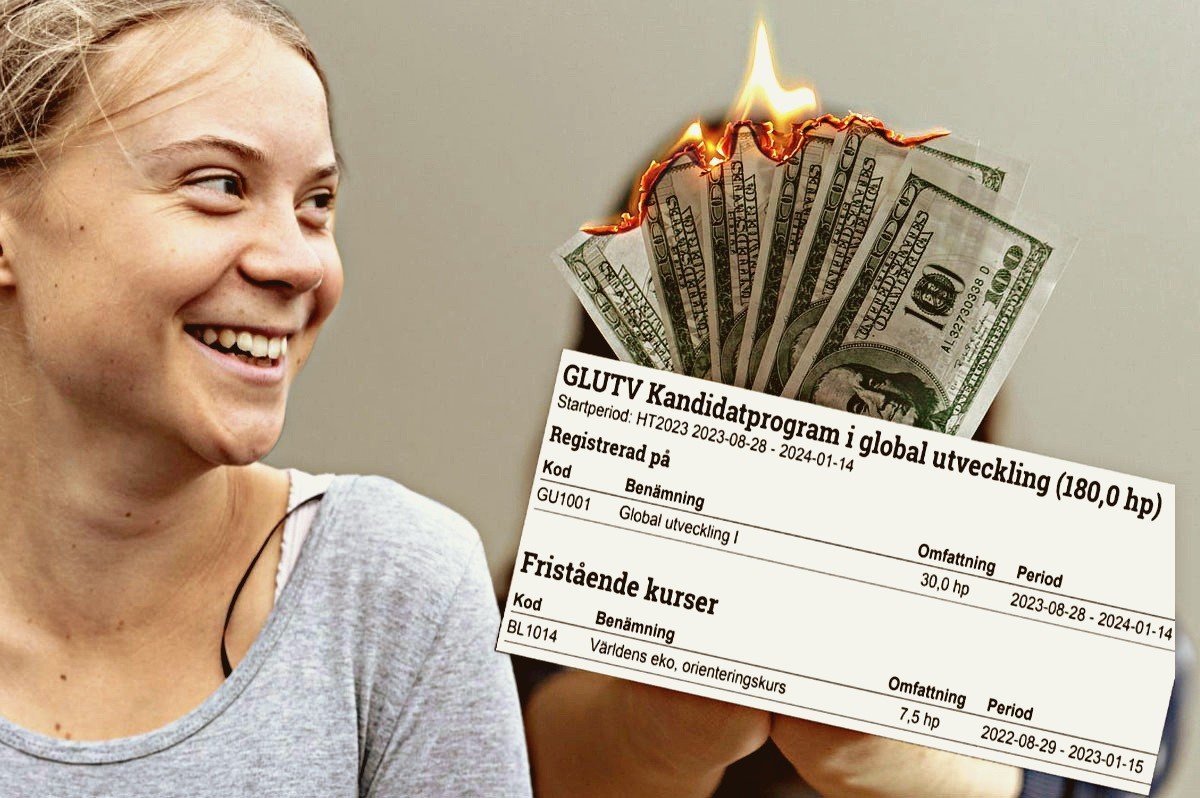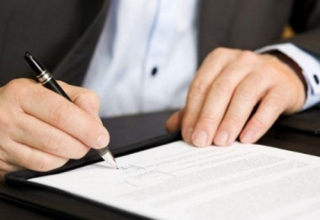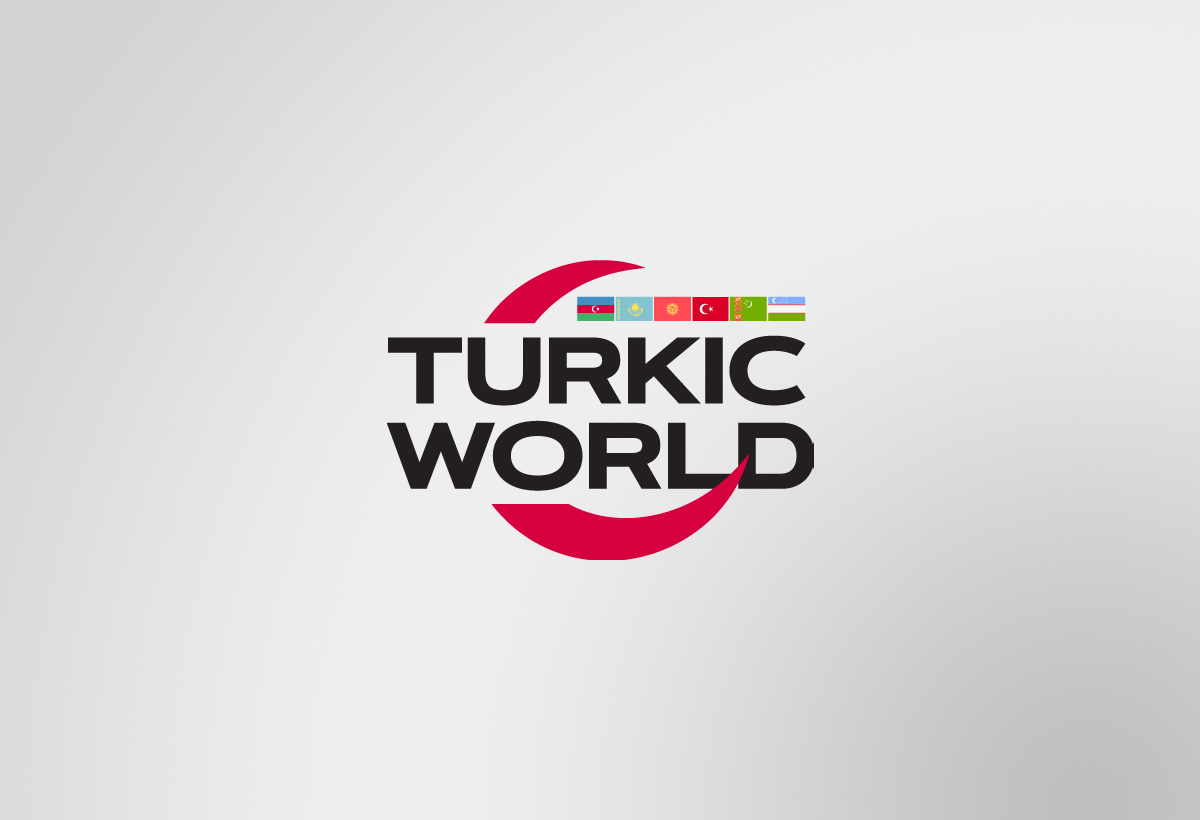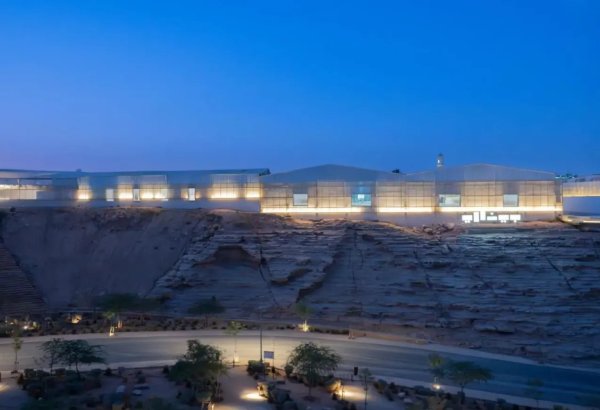BAKU, Azerbaijan, November 23. Greta Thunberg, the Swedish teenage climate activist, has risen from a solitary protester to one of the most recognizable faces of the global environmental movement. TurkicWorld reports citing BakuNetwork.
For her supporters, she is the moral compass of a generation, demanding urgent action to save the planet. For her critics, she’s a well-packaged product—an icon engineered to serve hidden agendas. So, who is Greta Thunberg? A fearless advocate for climate justice or a pawn in a high-stakes game of political and corporate power?
The Spark That Lit a Global Firestorm
Greta’s journey began modestly in 2018 when she skipped school to hold a lone protest outside the Swedish Parliament. Her hand-painted sign, “School Strike for Climate,” was more than a slogan—it was a rallying cry. In a matter of months, her quiet defiance snowballed into a global movement. Students around the world started joining her Fridays for Future protests, and Greta herself became an international sensation.
Her rise, however, was far from organic. Enter Ingmar Rentzhog, a Swedish PR guru and founder of the environmental platform We Don’t Have Time. Rentzhog quickly recognized Greta’s potential as a marketing powerhouse. According to Swedish newspaper Svenska Dagbladet, Greta’s image was central to the platform’s strategy, helping it rake in millions in investments. While Greta later distanced herself from Rentzhog’s project, critics argue her meteoric ascent was no accident.
Some even suggest her protests were orchestrated from the start. German outlet Die Weltwoche claims her campaign had the backing of seasoned strategists, including former U.S. Vice President Al Gore. Gore, a leading voice in climate advocacy, has reportedly profited handsomely from carbon credit trading, fueling speculation about the true motivations behind Greta’s rise.
Brand Greta: A Beacon or a Facade?
There’s no denying that Greta Thunberg is more than an individual—she’s a brand. Her message, her demeanor, even her iconic braids have become symbols of a new wave of environmentalism. But with every symbol comes controversy. To her admirers, Greta is a beacon of hope, a reminder of what’s at stake if the world doesn’t act. To her detractors, she’s a polished product designed to appeal to youthful idealism while advancing the agendas of environmental lobbyists and multinational corporations.
Her family’s involvement has only deepened the intrigue. Greta’s mother, opera singer Malena Ernman, published a book chronicling the family’s commitment to sustainability, sparking accusations that Greta’s activism is part of a larger PR project. Critics have branded her a “puppet,” pointing to the seamless way her protests have dovetailed with the interests of powerful players.
“How Dare You?”: A Global Mic Drop
Greta’s breakout moment came in 2019 when she delivered her now-iconic “How dare you?” speech at the UN Climate Summit. Her searing indictment of global leaders for failing to act on climate change electrified her followers and enraged her critics. The address spawned memes, headlines, and heated debates.
Even world leaders couldn’t resist weighing in. Former President Donald Trump dismissed her with characteristic sarcasm, tweeting that she seemed like a “very happy young girl looking forward to a bright and wonderful future.” Russian President Vladimir Putin called her naive, suggesting she lacked the understanding to grapple with complex economic systems. Whether lauded or mocked, Greta’s speech left an indelible mark.
Scrutiny Over Actions: The Cost of Leading the Movement
As Greta’s influence has grown, so has the scrutiny. Her 2019 voyage across the Atlantic on a solar-powered yacht, aimed at promoting sustainable travel, came under fire after critics pointed out that the yacht’s construction and logistics left a significant carbon footprint. This incident, among others, raised uncomfortable questions: Is Greta’s activism as eco-friendly as it appears?
Her rhetoric, too, has drawn sharp criticism. By labeling capitalism as the root of the climate crisis, Greta has sparked outrage among conservative politicians and economists, who accuse her of promoting utopian ideals and anti-capitalist propaganda.
A Polarizing Phenomenon
Greta’s impact has been as divisive as it is profound. In Europe, she’s celebrated as a youth icon, inspiring school strikes and climate marches from Berlin to Barcelona. But in the United States and Russia, her radical stance often draws ire. Her arrest in Germany during protests against a coal mine expansion in January 2023 reignited the debate. To her supporters, she’s a symbol of resistance. To her detractors, she’s a savvy PR operative.
Greta’s Paradox: Leader or Instrument?
Greta Thunberg embodies the paradox of modern activism. She has inspired millions to care about the climate crisis, yet her story raises uncomfortable questions about the forces behind her fame. Is she an authentic voice calling for change, or a calculated instrument wielded by those profiting from ecological panic?
Her future—and the future of the movement she has come to symbolize—hinges on whether she can transcend the forces that propelled her into the spotlight and become a truly independent leader. In the end, Greta Thunberg is both a hero and a product of her time. Whether she remains a symbol of hope or becomes a footnote in the annals of environmentalism will depend not only on her actions but also on the transparency and authenticity of those guiding her journey.
Voice or Instrument?
Greta Thunberg represents one of the great paradoxes of modern activism. On one hand, she’s proof that one individual, armed with a message and determination, can mobilize millions. On the other, her rise to prominence sparks pressing questions about manipulation, agenda-setting, and the unseen hands shaping public perception. So who is Greta: a fearless advocate for a sustainable future or a calculated instrument wielded by those profiting from the ecological alarm? The answer, it seems, depends largely on the perspective of the observer.
A Subtle Game of Influence
Thunberg’s rise has been meteoric, her popularity so immense that criticizing her is seen as risky, especially in the West, where cultural norms surrounding tolerance and sensitivity are deeply entrenched. As a teenager with Asperger’s syndrome, Greta is an unlikely—but formidable—figure. Attacks on her often backfire, with critics appearing out of touch or even callous.
Even Donald Trump, notorious for his no-holds-barred rhetoric, treaded lightly, resorting to sarcasm rather than outright critique. His infamous tweet portraying Greta as a “very happy young girl looking forward to a bright and wonderful future” sparked mixed reactions across the political spectrum. Elsewhere, in Belgium, an ecology minister resigned after publicly criticizing school strikes inspired by Greta’s activism, demonstrating the political minefield her movement has created.
But Greta’s influence extends beyond mere public sentiment. Her activism has tangibly altered political dynamics, especially in Europe. Green parties have ridden the wave of her popularity, bolstering their platforms and gaining unprecedented influence. In the 2019 European Parliament elections, greens captured roughly 20% of the vote—a seismic result fueled in no small part by the momentum Greta’s rhetoric generated. While she professes neutrality toward political factions, her messaging aligns almost seamlessly with their agendas.
The Myth of Altruism: From Genuine Activism to Strategic Branding
Greta’s public image is a careful balance of sincerity and symbolism. Her impassioned speeches and calls to action have won her admirers across the globe, but skeptics question whether her activism is entirely altruistic. The German newspaper Taz raised eyebrows with its exposé, “The Commercial Exploitation of Greta Thunberg,” which highlighted how her persona has been leveraged for marketing and PR gains.
Her early association with We Don’t Have Time, an environmental initiative spearheaded by PR strategist Ingmar Rentzhog, remains a contentious point. While Greta publicly severed ties with the project in 2019, her name had already been central to its multimillion-dollar fundraising efforts. Critics argue this connection exemplifies how movements can blur the lines between activism and commerce.
Even her symbolic Atlantic crossing on a solar-powered yacht in 2019, hailed as an eco-friendly alternative to air travel, wasn’t without controversy. Observers pointed out that the yacht belonged to a wealthy businessman whose broader environmental track record was dubious at best, raising questions about the integrity of such gestures.
The broader ecosystem surrounding Greta raises further questions. Figures like Luisa-Marie Neubauer, often seen by Greta’s side, have documented connections to organizations linked to billionaire philanthropist George Soros. Though direct evidence of manipulation by Soros or other high-profile figures like Al Gore remains absent, their involvement in shaping global climate narratives cannot be ignored. Greta, skeptics suggest, may be less of a grassroots phenomenon and more a meticulously engineered symbol of environmental urgency.
Greta as a Tool of Pressure
It’s impossible to ignore the clout Greta wields. Her speeches, protests, and arrests generate headlines and force reactions from the most powerful political and corporate figures. She has become both an inspiration for young climate activists and a tool of leverage against institutions reluctant to embrace change.
The imagery of Greta being detained during a German coal protest, or her fiery 2019 UN address punctuated by the now-iconic “How dare you?!”, has become a rallying cry for supporters and a flashpoint for critics. These moments are more than just photo ops; they are masterclasses in symbolic politics, sparking debates and catalyzing shifts in policy. But are these moments authentic expressions of activism or elements of a grander strategy?
Hero or Product of the Era?
Greta Thunberg transcends the label of “activist.” She is a brand, a symbol, and a phenomenon, embodying the hopes of a generation while carrying the weight of the global climate debate. Yet her journey is fraught with contradictions. Her idealism inspires millions, but the intersection of her image with commercial and political interests casts a shadow over her narrative.
The ultimate question remains: Can Greta preserve her independence and evolve into a truly autonomous leader, or will she remain a tool for those already capitalizing on her fame? The answer will not only define Greta’s legacy but also chart the future course of the global environmental movement. As the climate crisis deepens, the story of Greta Thunberg—whether as a hero, a product, or both—will continue to serve as a mirror reflecting society’s values, priorities, and the power dynamics shaping them.















